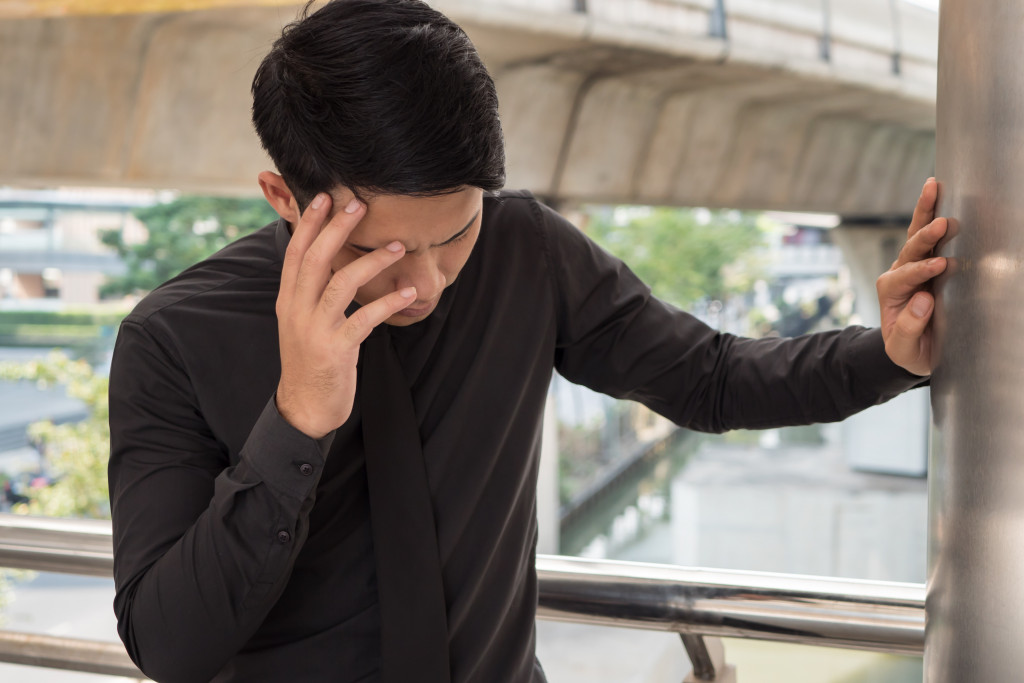It’s normal to be anxious when you’re under a lot of stress or dealing with a difficult situation. But if you’re constantly worried, it can be hard to manage your day-to-day tasks and responsibilities. Some people experience anxiety attacks, periods of intense anxiety that can make it difficult to function daily.
Anxiety disorders affect 40 million American adults. With so many people suffering from this condition, it’s essential to know what things can make your anxiety attack worse. Certain behaviors often exacerbate mental and physical symptoms of anxiety, which is why it’s critical to avoid these habits if you’re prone to anxiety attacks.
If you’re suffering from anxiety and anxiety attacks, you should know how to manage them. Otherwise, you’re just going to make it worse. Here are some things that you should avoid doing while anxiety is flaring up:
1. Examining Yourself Frequently
One of the common anxiety symptoms is obsessive self-monitoring — constantly checking in on our thoughts, physical sensations, and behaviors to detect signs of distress. The more we focus on our negative thoughts, uncomfortable bodily feelings, or occasional unhealthy behaviors, the more these symptoms become amplified and exaggerated in our minds.
In addition, this constant self-checking can lead to even more anxiety. Given this reality, it’s crucial for those struggling with anxiety to examine themselves less frequently, focusing instead on taking action to improve their situation. Doing so can help reduce overall anxiety levels and make life a little easier for everyone involved with time and patience.
2. Ignoring Relaxation Techniques
When experiencing an anxiety attack, it can be difficult to calm your mind and relax your body. Over time, simply ignoring these troubling symptoms can worsen anxiety attacks. One effective solution for managing anxiety attacks is relaxation techniques, such as yoga, mindfulness, or even using a massage machine.
These techniques can help release tension in the muscles, allowing your body to relax and experience a feeling of well-being. Additionally, they can be beneficial in reducing feelings of stress, which are often key triggers for anxiety attacks.
By focusing on relaxation techniques, you can better manage your stress levels and reduce the severity of future attacks. With practice and determination, you can move past the debilitating effects of chronic anxiety.
3. Avoiding Social Interactions
While it is often tempting to avoid social situations when feeling anxious, it can worsen the condition. Isolation can intensify feelings of anxiety and paranoia and make it harder to manage symptoms.
In contrast, social interaction can help distract from anxious thoughts and provide support from friends and family. Additionally, participating in activities with others can help to boost self-esteem and confidence. Therefore, while it may be difficult, it is vital to face your fears and interact with others if you struggle with anxiety.

4. Fixating on the Future
Fixating on the future can be a common anxiety trap, which isn’t always helpful. When we dwell on our fears or concerns about what might happen tomorrow, next week, or even years down the road, it heightens our anxiety levels and makes us more susceptible to panic attacks.
Instead of fixating on the future, staying present is essential. This can help to prevent anxiety from spiraling out of control. By embracing today’s opportunities and trusting that things will unfold as they should, we can lessen the severity of anxiety attacks and allow ourselves to live more fully in each moment.
5. Using Substances or Alcohol
Many people who suffer from anxiety face whether to use substances or alcohol to cope with their feelings of stress and worry. However, while these substances may provide temporary relief in the short term, they can worsen symptoms.
This is not advisable because they interfere with the natural balance of chemicals in the brain and disrupt communication between neurons. As a result, using substances or alcohol can trigger more severe and frequent anxiety attacks, leaving you feeling worse than before. With time and practice, you will be able to find healthier ways to manage your anxiety instead of relying on alcohol and substances.
6. Not Seeking Help
Not seeking help may make anxiety attacks worse in the long run. In particular, avoiding outside help may lead to feelings of isolation and loneliness since social support has been linked to better outcomes for those suffering from anxiety.
Additionally, staying inside your head and ruminating on anxious thoughts may only serve to intensify your distress during an attack. Therefore, if you suffer from frequent or severe anxiety attacks, speaking with a healthcare professional may be one of the best ways to help manage them over time.
Managing your anxiety is a journey that takes time and effort, but it’s worth it. If it’s affecting your daily life and relationships, it’s essential to seek professional help. You can develop healthy habits that help you manage your anxiety and live a happier life with time and practice.

